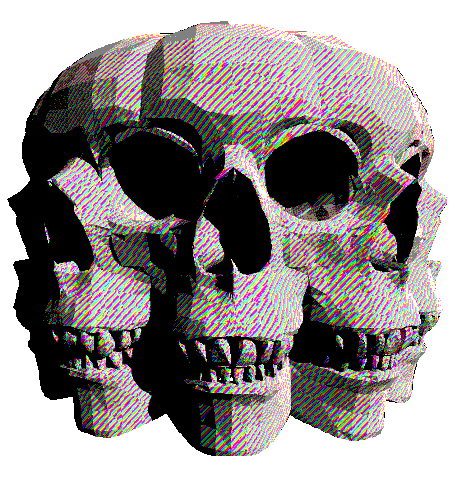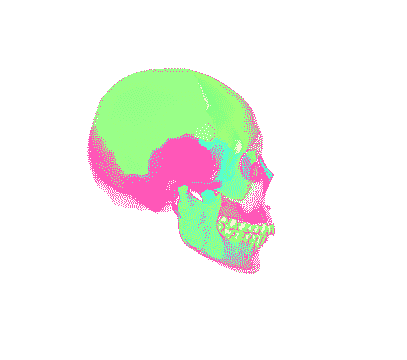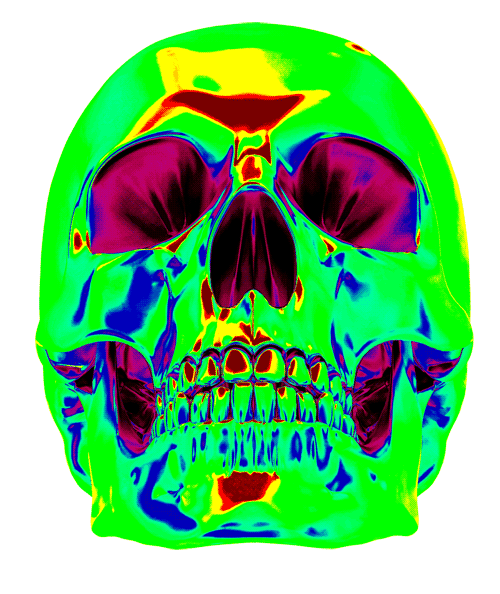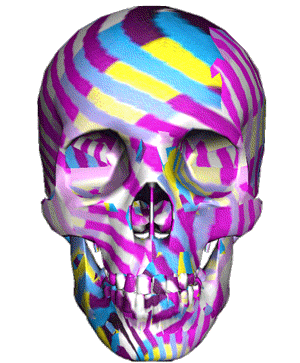


TOTALITY | SINGULARITY:
The self-moving Subject in modern Chinese history 1740-1949 (the decline and fall of value-resistant forms of praxis)


|


|

 |

 |
|---|
| 上 HISTORICIZING THEORY | notes |
|---|---|
The interrelationship of the relations of production and the productive forces is conceived of as constituting the social totality of capitalism; the antagonism between these two moments constitutes the internal dynamic of the capitalist mode of production – in other words, this antagonism is what drives its historical movement. It has traditionally been explained as an antagonism between a historically particular set of social relationships (private property and the market – i.e. distribution) on the one hand and labour, conceived transhistorically, on the other.
To elucidate how Marx understood the elements of this totality in their movement and interaction – how they are expressive of the internally-directed trajectory of that totality), and how Marxists have understood them thereafter, is to deal directly with the research directions indicated by Postone in his chapter on ‘the presuppositions of traditional Marxism’. Postone describes the shift theoretical attention from a critique of the totality of the capitalist mode of production from the standpoint of the possibility of its overcoming to a critique of one of the moments of that totality (distribution) from the standpoint of another of its moments (production); in his terms, Marx’s ‘critique of political economy’ became a ‘critical political economy’: “The difference between the two forms of critique is profound: what in Marx’s analysis is the central object of the critique of capitalism becomes the social basis of freedom for traditional Marxism” (69)[1].
He states that arguing for misreading or misinterpretation of Marx’s analysis is inadequate to explain this twist – that what is required, beyond reference to ‘exegetical method’, is: (1a) an explanation of how the focus on distribution becomes possible, based on the way in which social relations are manifest (labour appears transhistorical); (1b) an explanation of how distribution would become the exclusive focus, based on the movement from production in volume I to distribution in volume III (“systematic misrecognition” (70) of the daily subjective forms of experience for the totality of existence under capitalism); finally, (2), analysis of the historical conditions beneath the actual emergence and development of this critical political economy.
Part (2) of the above will be dealt with in the latter half of this document in terms of the experiences of Chinese Marxism in the twentieth century; part (1) will be dealt with presently through a selective survey of the development of Marxist praxis in the West, the USSR, and in China during the same period (covered by Postone, and comprehensively by Martin Jay – there is no need to repeat their work here; ‘selective’ therefore means that points of agreement of disagreement or omitted details will be included).
Prior to this, however, the supposition that exegetical method is insufficiently explanatory requires qualification. It will be argued below that, over the course of their thought on the matter, Hegel and Marx display ambivalence and movement in their articulation of totality; the mutation of their thought has formed an unstable theoretical foundation – shifting tectonics – that has led not to ‘misreading’ as such but to – for better, for worse – the historical proliferation of Hegelianisms and Marxisms. In other words, the kernel of confusion has been extant from the beginning. Because these shifting tectonics have a direct, causatively foundational relation to the emergent possibility of a transhistorical conception of labour (1a above) within the Marxist tradition, they will be dealt with now.
The debate over the primacy of the forces or relations of production – over the relationship between these two moments in general – re-manifests an earlier debate on the theory of tragedy engendered by Hegel’s exegesis of the Antigone of Sophocles, as that exegesis developed across the Phenomenology (1807), the Aesthetik, and the Lectures on the Philosophy of Religion (1820s), and within debates over that interpretation which have persisted thereafter.
George Steiner said that Hegel set the text at “the pivot of consciousness” (p.8): “A theory of tragedy is not an adjunct to Hegel's construct. It is a testing ground and validation for maintenets of Hegel's historicism, for the dialectical scenario of his logic, and for the central notion of consciousness in progressive conflict” (p.21). This document will deal with the centrality of the play and of tragedy in general to the system he describes. How the antagonism between Creon and Antigone, and the consequent destruction of the polis, has been understood, interpreted and appropriated (in terms of both the movement of the drama itself as well as its structural expression in the Greek tragic form) from Hegel onwards forms a fertile ground for understanding (a) the historical development and future trajectory of the capitalist mode of production; and (b) the theoretical articulation of this movement.
As we proceed on this course, the line of our argument will intersect with a number of other debates each of which have some degree of relevance to our objectives as well as being of interest in and of themselves. These will include: (1) as stated above, Hegel’s general conception of tragedy and its place within his system, especially with regards to the three Theban plays of Sophocles; (2) regarding Antigone in particular, the interpretation of the ‘second burial’; and (3) the debate over the ongoing relevance of the Phenomenology of Spirit in light of Hegel’s later works.
This third bears comment now. Three levels of understanding are needed – to what extent can we decipher, divine, and/or reconstruct Hegel’s own attitude to the Phenomenology from the perspective of his later writings; (2) how have later commentators themselves understood the relevance of the earlier text; and (3) what is the text’s relevance for us, given the Postonian location of the Hegelian self-moving subject as the totality of capitalist relations. This will be dealt with in more detail in the addenda. In terms of the work’s relevance for us: the Phenomenology outlines the general dynamics of (a) the first stirring of the circuits of capital from within the pre-capitalist world, and as such is instrumental to understanding the first volume of Marx’s Capital, especially the first three chapters – in this sense the Phenomenology expresses a singular determinate movement that once past is superseded; and (b) the ongoing mediation between expanding capitalist social relations and the non-capitalist world – in this sense the phenomenology expresses a dialectic process that is ongoing in the liminal space between the capitalist interior and that which lies beyond. [2]
In terms of our approach - what is necessary to our argument here - it is helpful to contrast it with that of Steiner. In that book he articulates two main arguments with respect to the Hegelian interpretation of Antigone: (1) that Hegel's interpretation shifted from its early exposition in the Phenomenology, from an interpretation sympathetic to the heroine to one that emphasizes a symmetrical collision and destruction of Antigone and Creon; and (2), that this shift was a distortion imposed by Hegel on the text to force a correspondence with his own conception of dialectical movement. For our purposes, it is the extent to which the former argument holds true that interests us, and that will be ivestigated below. The latter, however, is not entirely irrelevant, and will be engaged with when the moment is opportune. To re-state: the objective of our investigation and argument below is to establish the level of consistency in Hegel's use of the tragedy, beginning with the Phenomenology of 1807.
 (A) Phenomenology of Spirit §18-28 Hegel’s conception of the Subject has been introduced in the preceding overview. It is essential to grasp this conception as it is outlined in the Phenomenology from two aspects – the movement of the Subject itself, and cognition of the movement of the Subject by the individual self-consciousness. Hegel’s objective is to explain “[culture’s] laborious emergence from the immediacy of substantial life” (§4) and thereby to overcome the subject/object dichotomy – that is, to explain the emergence of self-consciousness and Spirit from substance; the preservation of self-consciousness within the same. This is to understand, then, the totality as something substantial that is also Spiritual, and to understand what this entails. It is dealt with broadly in the Preface – the entire movement of the Phenomenology is contained there in microcosm [3] – particularly between §18 and §28, and is detailed across the sections Reason and Spirit between §394 and §475. These will be the reference points. The two elements – substance and spirit – are necessarily interrelated, interdependent, as contained within one another. In §17 Hegel contrasts this with conceptions of God as an entirely substantial Absolute (the Spinozan argument [4]) as well as conceptions of God as entirely Spiritual. Neither of these conceptions can proceed beyond a simplicity which is “undifferentiated, unmoved…inert.” It is a substance that through movement – a movement whose purpose, direction and result is a ‘self-othering’ – comes to know its movement as a self-othering. This self-othering is a process of negation (a division, a difference, a contradiction) followed by the affirmation of self-sameness that creates and re-creates the emergent Subject. It is the circle formed by the movement of the substance as it returns to itself that is Spirit; cognition of the circle is our elevation into the circle. The movement of the Subject is referred to as ‘labour’ – firstly in the quote above, describing culture’s ‘laborious emergence’, and also here in §19 where the action of self-othering is described as ‘the labour of the negative’. This is to maintain the argument against an immediately Spiritual conception of God which takes the result in isolation of the process by which it was arrived [5] – this negative labour is the process of creative destruction (the creation and superseding and sublation of the forms wherein Spirit is historically substantiated) that is the self-othering of the Spiritual substance and that is accompanied by suffering and death. One cannot know the essence of Spirit except thru the mediation of its historically-developing forms: “Just because the form is as essential to the essence as the essence is to itself, the divine essence is not to be conceived and expressed merely as essence, i.e. as immediate substance or pure self-contemplation of the divine, but likewise as form, and in the whole wealth of the developed form. Only then is it conceived and expressed as an actuality.” The totality – what is meant by God, the ‘True’ – is this movement wherein what moves and what it moves within is understood and thereby metabolized as of itself; its movement is this process of understanding and metabolism: “The True is the whole. But the whole is nothing other than the essence consummating itself through its development” (§20). The movement is nothing other than historical substantiation, instantiation: initially it is empty, the bare essence that Hegel has already criticized as meaninglessly inert; through historical instantiation it becomes pregnant where before it was merely fertile, or, in Hegel’s terms, it is an embryo developed to maturity. It is the difference between what is merely possible and what has become actual: “Though the embryo is indeed in itself a human being, it is not so for itself; this it only is as cultivated Reason, which has made itself into what it is in itself And that is when it for the first time is actual.” (§21) What has already been termed labour is then characterized specifically as ‘purposive activity’: “in the sense in which Aristotle, too, defines Nature as purposive activity, purpose is what is immediate and at rest, the unmoved which is also self-moving, and as such is Subject” (§22). Whilst analysis of Capital follows below, it is here where intersections with labour and praxis as constituted therein – and Marx’s appropriation of Hegel in general – become difficult to ignore. Such purposive activity is Nature set against itself – “He opposes himself to Nature as one of her own forces” (Marx, Capital, I, Ch 7) – the result of which is the instantiation of the possibilities extant at the outset of the cyclical: “We pre-suppose labour in a form that stamps it as exclusively human. A spider conducts operations that resemble those of a weaver, and a bee puts to shame many an architect in the construction of her cells. But what distinguishes the worst architect from the best of bees is this, that the architect raises his structure in imagination before he erects it in reality. At the end of every labour-process, we get a result that already existed in the imagination of the labourer at its commencement. He not only effects a change of form in the material on which he works, but he also realises a purpose of his own that gives the law to his modus operandi, and to which he must subordinate his will” (ibid.). The shape of the circle consciousness is bound upon is preserved in the opening of the movement (again contra Spinoza) and in the closing of the movement it comes to fruition. Purposive activity – whether construed as embryonic development, physical labour, philosophical argument, or the process of Spirit through history – is this filling-out of the original, empty proposition: “Only in the end of the proposition does the empty beginning become actual knowledge” (§23). Section 25 is the culmination of the first aspect of the Hegelian Subject and re-states the cyclical process of reflection that constitutes the emergence of Spirit from substance, the substantial expression of Spirit [6]. In this section, Hegel again shifts between endo- and exo-physical perspectives as means of explaining how the cyclical movement of totality appears from within and how it appears from without – to the isolated self-consciousness, or the ‘uneducated individual’. The groundwork for this shift has already been laid. Philosophical argument is required to be the correspondingly systematic cognition of the process of Spirit through history (§24) – in other words, it must be immanent. This is a restatement of what has already been indicated at the outset (§2) [7]This moves us to the second aspect indicated above: cognition of the movement of the Subject by the individual self-consciousness. Through this movement Science emerges and actively demands to be known: it requires for its preservation the ongoing reflection of self-consciousness: “it has to posit self-consciousness as one with itself” (§26). Sections 26-28 deal with this passage. §394-415 Hegel closes the chapter on Reason (AA) with the section titled “Individuality which takes itself to be real in and for itself.” This title refers to the moment in which the circle of self-consciousness affirms reality – that which it moves within – as of itself, as belonging to self-consciousness, for self-consciousness, as constitutive of self-consciousness. Hitherto this has been apparent to the outside observer; now it is self-evident to self-consciousness itself: “Self-consciousness has now grasped the Notion of itself which, to begin with, was only our Notion of it, viz. that in its certainty of itself it is all reality” (§394). The main point to be emphasized is that it is here that self-consciousness is not only seen by us as constitutive of the totalizing movement but moreover now sees itself as constitutive of that movement. A second point, that has been mentioned above but will be detailed here, is on the methodology adopted by Hegel (see footnote [1], and refer to the Overview). In the first sentence to this section, quoted above, Hegel shifts from what we are calling an exophysical perspective to the endophysical. This shifting takes place at important moments throughout the Phenomenology and has corollaries in modern computational theory and studies of complexity – it is the difference between looking at a system from the outside (the God’s-eye viewpoint of classical physics) and observing a system from within, as one of its constituent parts (the observer-dependent viewpoint of quantum physics) [8]. To persist with the main point, however: it is this new reflection within self-consciousness that signifies the transition from rational self-consciousness to spiritual self-consciousness: “[Reason], being now absolutely certain of its reality, no longer seeks only to realize itself as an End in antithesis to the reality which immediately confronts it but, on the contrary, has the category as such for the object of its consciousness” (§394). Rational self-consciousness now no longer sees itself as the product of a reality from which it seeks to differentiate itself; rather, as subject, it sees itself a productive of that reality – it is both End and origin. Its action is the expression of this truth. In completing this circle of self-othering and returning to itself deepened and intensified, it is these reflections that constitute its hard-fought-for new depth and intensity (complexity) – all those previous forms it has taken along the way, and the dichotomies it has confronted and sublated in preservation of itself, are suspended within it: “It has for its object the pure category itself, or it is the category which has become aware of itself…” (both of these hold), “…Its account with its previous shapes is thereby closed; they lie forgotten behind it, and no longer confront it as a world given to it, but are developed solely within itself as transparent moments” (§395). This paragraph will be returned to in the following section on Marx; here, it is sufficient to see that, these dichotomies overcome, self-consciousness becomes conscious that it moves within itself. In §396 Hegel, from the exophysical perspective, describes with eloquence the topology of this movement: “Since individuality is in its own self actuality, the material of its efforts and the aim of action lie in the action itself. Action has, therefore, the appearance of the movement of a circle which moves freely within itself in a void, which, unimpeded, now expands, now contracts, and is perfectly content to operate in and with its own self. The element in which individuality sets forth its shape has the significance solely of putting on the shape of individuality; it is the daylight in which consciousness wants to display itself.” The cyclical process – which has been emphasized in our discussion above and which will be fundamental to our understanding of Marx – becomes raised here to a new level of importance. It has hitherto been useful for Hegel in approaching dialectical movement in media res and expressing its fluid movement: he switches between two modes – the origin of the cycle returned to, at rest, in stasis (‘in its simplicity’) wherein the content of the previous cycle has been expressed and can be described, followed by the action of the new cycle in its own particular motion: “Action itself is, a content only when, in this determination of simplicity, it is contrasted with its character as a transition and movement” (§396). This is given new significance here as the latter – the action – becomes the true antithesis of the former, the plan. In light of this, the question is: what is the movement that belongs to self-consciousness now, at this moment in its development (the closing of Reason)? This is what is dealt with in the section opening with §397. The cycle has paused and is presented to us: “This intrinsically real individuality is at first again a single and specific one. The absolute reality which it knows itself to be is, therefore, as it will become aware, an abstract, universal reality lacking filling and content, merely the empty thought of this category.” It should be emphasized here again that having completed its original movement and realized that movement’s intention, it is empty once again, a form requiring movement to provide its content. Idea manifests itself thru action. The ‘action’ of the single and specific self-consciousness as it is presented here may be set in motion by one or another particular intention, but when intention is stripped away the bare function of action is as expression of the real presence of the individual. It follows that action, having been sent out into the world, may return to the self-consciousness in a form apart from that which was intended, may be understood fully only in hindsight, and may be subject to contingency, or failure [9]; intention notwithstanding, action as such expresses the metabolism by the totality that is self-consciousness of its own reality, through which action it realizes its own actuality. It realizes, that is, that its being is becoming and that it is a totality only within its own movement: “Consciousness must act merely in order that what it is in itself may become explicit for it; in other words, action is simply the coming-to-be of Spirit as consciousness…an individual cannot know what he [really] is until he has made himself a reality through action” (§401 [10]). Before we move to discussion of Antigone proper, three integral themes are introduced §§402-411. The first is the passage from consideration of the singular individual in its action to the encounter of particular actions within a community of self-consciousnesses. Hegel lays the groundwork for this transition: “[Consciousness] can therefore compare one work with another, and by so doing grasp individualities themselves as different” (§402); “The work is, i.e. it exists for other individualities, and is for them an alien reality, which they must replace by their own in order to obtain through their action the consciousness of their unity with reality” (§405). The second is what has been indicated above – the new significance of the two moments of the circle (stasis and movement) – that significance is now the distinction, difference, ‘disparity’ between the intention (the original substance) and reality (§406). Thirdly, which in fact simply exemplifies the former, is the emphasis on contingency that comes into play: the action of the individual, is again in an accidental relationship to reality in general; fortune decides as well in favour of an ill-disposed purpose and an ill-chosen means, as against them (§407). How contingency drives the split between Notion and action is explained in §409: “consciousness is reflected out of its perishable work into itself, and preserves its Notion and its certainty as what objectively exists and endures in face of the experience of the contingency of action.” This leads to the errors of the honest consciousness – because self-consciousness must take it on itself to let the circle be unbroken, because it must exert will to hold together the action of the ‘matter in hand’. This state of existence leads self-consciousness into error. Action to elevate the self-consciousness as an actor, merely to reinforce that it is the one who acts; hovering on the notion of acting without attempt; basking in good fortune which is not the result of meaningful action: these three examples from §413 in their own way centralize or elevate the moment of stasis. It is enough that that exists – validation comes not thru the completion of the action in terms of the notion, on the basis of the notion. It in fact is validation of the stasis itself – whether that is the state of needy self-expressive rebellion, or a state of inertia, or a state of good fortune: “He is concerned merely with being active and being busy.” §416-437 Antigone does not appear within the Phenomenology to any great fanfare or explicit indication (the play itself is quoted directly on only two occasions); it is rather that the focus of the text, the intensifying and deepening spiral that is the trajectory of self-consciousness, in its rotation orientates itself such that the action of the tragedy plays out as an entirely organic part of the whole. The drama of the Phenomenology fits itself around that of Antigone, who arrives when the cycle is ready for her and departs when it is time for self-consciousness and for ourselves to move our focus onward. Communities constituted by multiple instantiations of consciousness operating on different temporalities, with different histories, holding different past sequences of superseded forms – the unity of this consciousness is by necessity manifest in substrates suchwise differentiated – experience the united whole as something divided; it is thru this division that the whole (the ethical world in which individuality and the universal are interfused – §416) maintains its unity. This is a unity to which we, as exophysical observers of spirit’s phenomenology, are witness; it appears to these endophysical observers – the multiple instantiations of the consciousness itself – as the abstraction of their matter in hand and therefore as something divided: “The whole is the spontaneous interfusion of individuality and the universal; but because this whole is present for consciousness only as the simple essence, and thus as the abstraction, of the 'matter in hand' its separate moments fall apart outside of that 'matter in hand' and of one another.” In these lines the ethical battleground – the “play of individualities” in Hegel’s euphemism – that is the universe of Antigone is laid out. What mediates between these self-consciousnesses is not a particular matter in hand but in their shared being interested in a matter in hand, in a desired possession of a matter in hand that is theirs. They deceive others and are themselves deceived as to the nature of this mediation – interest in interest in a matter in hand is taken for mere interest in a matter in hand. In the sharing of one’s own matter and in interference with the matters of others, one is not concerned with the matter in and of itself but primarily with one’s own self and the expression of the same: “what is one’s own in the element of universality” (§417). The interaction which engenders this realization – the realization of self-consciousness that it itself is the ongoing *positing* of a matter in hand – this interaction is the communal creation of the individual as we know it: the pure matter in hand, the category, the I, “substance permeated by individuality” (§418). The phrasing used here is indicative of where we arrived, that is the transition from a substance permeated by individuality to a substance permeated by spirituality. This transition is governed on either side by the Antigonal tragedy. The individuated self-consciousness now embodies within its being the antithesis which it previously confronted as one side – that was the antithesis between thought and action which become united in the individuated self-consciousness as positing, as praxis. This empowers self-consciousness only to the extent that – as it becomes aware that it is one instantiation within a community of many, that its self-hood is something not determinate but universal – it becomes aware of its own subalternity, governed as it is by its own developmental laws of motion (§419). This is the constituent antithesis of spiritual essence, in which the individuated self-consciousness finds itself on one side. “What is object for consciousness has the significance of being the True” (§420): that True is composed of the circumscribed laws of motion wherein the individuated self-consciousness can exist – laws which provide for the possibility and necessity of the self-consciousness, which are only the self-ness of the consciousness writ large, and which as well provide the terms of its imprisonment. It is in this sense that “self-consciousness cannot and does not want any more to go beyond this object, for in it, it is in communion with itself”. Consciousness of this which compels is ethical consciousness. For the exophysical onlooker the metabolic process opened in §401 (“Consciousness must act merely in order that what it is in itself may become explicit for it”) is now closed: “The object is in its own self real as object, for it contains within itself the distinction characteristic of consciousness; it divides itself into masses or spheres which are the determinate laws of the absolute essence” (§420). Pure consciousness as an Absolute is a gravity both shaped and traced by the movement of the self-consciousness and whose topography it is compelled across; ethical law in this sense takes on the character of obedience to physical law. Self-consciousness by its movement and experience has constituted the ethical world and is now confronted by it immediately: “Self-consciousness knows itself as a moment of being-for-self of this substance” (§422) encapsulates the tautology of individuated self-conscious being – why ethical laws cannot be established or escaped, that is why they appear to be immutable (transhistorical). As the pure consciousness articulates itself only through the medium of the contingent and imperfect determinate substrate – this is its unfortunate fate – so the individuated self-consciousness finds itself unable to articulate thru language the governing laws of the ethical substance. This is the difficulty of communicating philosophically: “So much has to be read again and again before it can be understood” (in §63, the preface)[11] . It finds subjectivity neither in legislation nor in judiciary – this is the condition of its subalternity. In articulating ethical law, self-consciousness mis-speaks – that is to say, ethical propositions propose as universal what is merely contingent (what is experienced as universal exigency dissolved thru its articulation into determinate contingency, §424). “All idea of an absolute content must be given up” (§426) – there can be no transparency between the essence and the content that is the movement of self-consciousness. The ethical substance cannot be resolved into absolute ethical laws; the self-consciousness cannot ground its ought in its is. From §429 onward, ‘Reason as testing laws’. The contingency that causes the exophysically apparent divisions in the ethical substance is threefold: (1) contingency of knowledge, that is the systematically subordinate, embedded nature of the endophysical observer and the consequently partial, incomplete nature of any ethical model that that observer constructs; (2) contingency of circumstances, that is, the variance of the temporalities and the material substrate into which determinatenesses are instantiated and in which they must undertake the particular trajectories of their own development; (3) contingency of the action that constitutes the shape of that trajectory. The conscious is elevated over the self-conscious as provider of its truth. A handover of power has occurred – altho the ‘matter in hand’ was also universal and external, it was “unthinking, inert”. The ethical substance is not so. For the exophysical observer: “When we were testing, the universal pure substance stood over against the determinateness, which displayed itself as a contingency of the consciousness into which the substance entered”. For the endophysical self-consciousness this has the appearance of immutable, eternal, unchangeable, already-given compulsion. The growth of the self-consciousness, its development from the spiritual animal kingdom, its failure as giver and tester of laws, is therefore the growing awareness of its own impotence: “The law, as a specific law, has a contingent content; this means here that it is the law of a single consciousness and has an arbitrary content. To legislate immediately in that way is thus the tyrannical insolence which makes caprice into a law and ethical behaviour into obedience to such caprice – obedience to laws which are merely laws and not at the same time commandments, So, too, the second moment, in so far as it is isolated, means testing the laws, moving the immovable, means the insolence of a knowledge which argues itself into a freedom from absolute laws, treating them as an alien caprice” (§434). Spiritual being is presented to self-consciousness as law. The form of this law is not as a commandment, not the will of a particular individual; it merely is, its validity is more akin to that of a physical law than a legal precept and it therefore does not demand ‘belief’: The law is equally an eternal law which is grounded not in the will of a particular individual, but is valid in and for itself; it is the absolute pure will of all which has the form of immediate being. Also, it is not a commandment, which only ought to be: it is and is valid; it is the universal 'I' of the category, the 'I' which is immediately a reality, and the world is only this reality. But since this existent law is valid unconditionally, the obedience of self-consciousness is not the serving of a master whose commands were arbitrary, and in which it would not recognize itself. On the contrary, laws are the thoughts of its own absolute consciousness, thoughts which are immediately its own. Also, it does not believe in them, for although belief does perceive essential being it perceives it as something alien to itself” (§436). The appearance of law is ahistorical, transhistorical; an understanding of their historicity would mean their transcending. This is the stage of Antigone. |
[1] The movement from a consideration of totality to the viewpoint of one of its particular constituent parts – a movement which is the object of critique here – is also undertaken deliberately by Hegel throughout the Phenomenology. This will be indicated in the discussion below; this kind of perspective shift in Hegel and Marx will be discussed with reference to the chorus of Greek tragedy and the endo/exo problem in physics both here and elsewhere. [2]Forster’s defense of the Phenomenology and of Hegel’s own continuing regard for the work expresses clearly the unique place of the work itself within the framework of the unfolding Hegelian dialectic (and is in that way an enjoinder for us, too, to reflect carefully on the impact historical materialism has had on the dialectical process it seeks to track): “The Phenomenology was from the start conceived as a work most of whose central tasks were in various ways relative to the historical context in which it was written, and whose success in performing those tasks would change that historical context in ways that would relieve it of the need to perform them any more, thereby making it largely redundant. Hegel’s later diminished enthusiasm for the work stemmed from a recognition that the historical context for its performance of those tasks was past, and this precisely because it had succeeded in performing them. On this explanation, therefore, Hegel’s diminished enthusiasm for the Phenomenology in the Berlin Encyclopaedia and other late texts is a symptom, not of a loss of confidence in the Phenomenology, but – paradoxical as this may sound – of a belief that the work has been successful.” (1998, p. 557) [3]“For whatever might appropriately be said about philosophy in a preface – say a historical statement of the main drift and the point of view, the general content and results, a string of random assertions and assurances about truth – none of this can be accepted as the way in which to expound philosophical truth…For the real issue is not exhausted by stating it as an aim, but by carrying it out, nor is the result the actual whole, but rather the result together with the process through which it came about.” (§§2-3) [4]The importance of Spinoza to Hegel and to Marx is beyond the objectives of this document and will be dealt with at a later date. Suffice here to quote from Macherey: “Hegel himself never stopped thinking about Spinoza, or rather thinking him, in order to digest him, to absorb him, as an element dominated by his own system. But the fact that Hegel never ceased to return to the problem that was posed for him by Spinoza’s philosophy indicates that he found something there that was indigestible, a resistance he continually needed to confront anew. Everything transpired as if Spinoza occupied a limit-position in relation to Hegelian discourse, which he rejected even at the moment of its inclusion. (9) [5]This is, not coincidentally, the same criticism he has already made of writing ‘Prefaces’ to philosophical works. [6]“The spiritual alone is the actual; it is essence, or that which has being in itself; it is that which relates itself to itself and is determinate, it is other-being and being-for-self, and in this determinateness, or in its self-externality, abides within itself; in other words, it is in and for itself. But this being-in-and-for-itself is at first only for us, or in itself, it is spiritual Substance. It must also be this for itself, it must be the knowledge of the spiritual, and the knowledge of itself as Spirit, i.e. it must be an object to itself, but just as immediately a sublated object, reflected into itself. It is for itself only for us, in so far as its spiritual content is generated by itself. But in so far as it is also for itself for its own self, this self-generation, the pure Notion, is for it the objective element in which it has its existence, and it is in this way, in its existence for itself, an object reflected into itself. The Spirit that, so developed, knows itself as Spirit, is Science; Science is its actuality and the realm which it builds for itself in its own element.” [7]“The bud disappears in the bursting-forth of the blossom, and one might say that the former is refuted by the latter; similarly, when the fruit appears, the blossom is shown up in its turn as a false manifestation of the plant, and the fruit now emerges as the truth ofit instead. These forms are not just distinguished from one another, they also supplant one another as mutually incompatible. Yet at the same time their fluid nature makes them moments of an organic unity in which they not only do not conflict, but in which each is as necessary as the other; and this mutual necessity alone constitutes the life of the whole.” [8]It will be required to explain how this corresponds to the emergent, immanent critique of capitalism. [9]See §63, used as an epigraph to this document in terms of an understanding of the historical impact of the emancipatory project. It is also in these terms that the misunderstood anecdote in which Zhou Enlai responds “it is too early to tell” when asked by Henry Kissinger about the impact of the French revolution has the ring of truth (Zhou was referring in fact to the protests of 1968). [10]It is here that George Steiner locates the first presence of Antigone in the Phenomenology: Being is a 'pure translation (reines Uebersetzen) of potential being into action, into 'the doing of the deed' [das Tun der Tat). No individual can attain an authentic knowledge of himself 'ehe es sich durch Tun zur Wirklichkeit gebracht hat' ('until it has brought itself into actuality through action'). The translation is one from 'the night of possibility into the day of presentness'; it is an awakening into the dawnlight of the deed of that which was the latency, the slumber of the self. This is the break of morning and of action for Antigone. The purpose of the existential act must be that of a total 'coming into being', of an accomplishment so central that it cannot be mere external 'facticity' (eine Sache).” (p. 29) [11]We are returned to the state of affairs with which the Phenomenology opened: immediate (sense-certainty); emergence of governing law (forces); failure of articulation. The return to sense-certainty applies to the state of affairs in which essence is perceived as not only immutable and transhistorical but in fact is containing within it the key to liberation. This is the return to Polynice’s corpse. It is constructive of the event horizon: “Any critique, then, that transhistorically argues that labour uniquely generates wealth and constitutes society….and that forms a critique of the mode of distribution from the standpoint of “labour,” necessarily remains within the bounds of the totality…Rather, it points to the historical overcoming of earlier bourgeois relations of distribution by a form that may be more adequate on a national level to developed capitalist relations of production. That is, it delineates the supercession of an earlier, apparently more abstract form of the totality by an apparently more concrete form. If the totality itself is understood as capital, such a critique is revealed as one that, behind its own back, points to the realization of capital as a quasi-concrete totality rather than to its abolition (83)”. This statement is Postone’s conclusion on the limitations of the traditional Marxist critique and its full implications will be drawn out over the course of this project. |